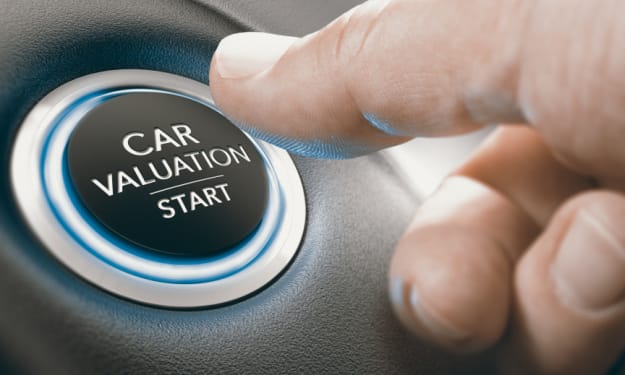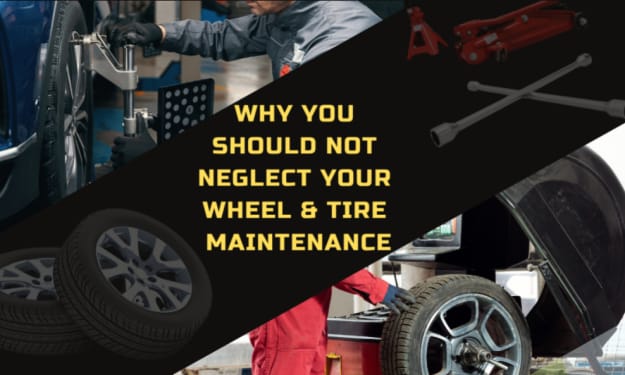How a History Report Can Help You Sell Your Car for Top Dollar!
Unlocking Value: How a History Report Boosts Your Car's Selling Price!

If you're thinking about selling your car, then you know it's not as easy as putting a sign on it and waiting for a buyer to show up. It takes a little more effort to ensure you're getting the best possible price for your vehicle. One way to help with this process is by obtaining a history report for your car. This report can provide potential buyers with a complete rundown of your vehicle's past, including any accidents or damage that may have occurred.
Cash for car buyers especially appreciates when a seller provides a history report. It shows that you are a transparent seller who has nothing to hide. With a history report in hand, you're one step closer to getting the best value for your car. Don't forget to consider scraply if your vehicle is no longer functional, too!
Understanding a History Report
Understanding a history report is essential when you are looking to sell your car. A history report will show potential buyers the car's complete history, including any accidents, repairs, or previous owners. It is important to understand what is on the report so you can be prepared to answer any questions buyers may have.
A history report can help you sell your car for top dollar by providing proof of the car's condition and maintenance history. It also allows you to be transparent with buyers and gives them confidence in purchasing a vehicle that has been well taken care of. So make sure you get a history report before putting your car up for sale!
Benefits of a History Report for Selling Your Car
When selling your car, providing a history report can greatly increase your chances of getting top dollar for your vehicle. Here are some of the benefits that come with providing a history report:
Enhanced credibility and trust - Providing a history report adds credibility to your sales pitch and shows that you have nothing to hide. Buyers are more likely to trust a seller who is open and honest about their car's history.
Transparency and full disclosure - Buyers want to know everything there is to know about a car before they commit to buying it. A history report gives them all the information they need, including past owners, maintenance history, and accident reports.
Demonstrating proper maintenance and care - A history report can show that you have taken good care of your car, including regular oil changes, tire rotations, and other necessary maintenance.
Highlighting accident-free history - Buyers are often wary of buying a car that has been in an accident. A history report that shows an accident-free history can ease their concerns and make them more likely to buy.
Proving mileage accuracy - Accurate mileage is an important factor in determining a car's value. A history report that confirms mileage accuracy can help you get a better price for your car.
Steps to Obtain a History Report
If you're looking to sell your car, obtaining a history report can be a crucial step to ensuring you get top dollar. Follow these four steps to get a thorough history report.
First, gather all relevant information about your car including its make, model, year, and VIN. This information is necessary to generate a complete report.
Next, choose a reputable history report provider. Look for providers with good reviews and reliable information.
Once you've chosen a provider, access the history report using your car's VIN number. Be prepared to pay a fee for this service.
Finally, review the report for accuracy. Make sure all the information about your car is correct. This includes past accidents, maintenance history, and any title issues.
By following these four steps, you can ensure you have a comprehensive history report that will give potential buyers confidence in purchasing your car. A history report can make all the difference in getting the price you deserve.
Interpreting and Utilising the History Report
A car's history report can be a valuable tool when selling your car. It provides a detailed account of a vehicle's past, including accidents, repairs, and maintenance. By understanding the information provided in the history report, you can assess your car's overall condition and make informed decisions when selling.
Identifying potential red flags:
When reviewing your car's history report, look out for any red flags. These may include a high number of previous owners, major accidents, or any signs of neglect or poor maintenance. Identifying potential red flags can help you address any issues and avoid any surprises down the road.
Addressing any issues found:
If you come across any issues in your car's history report, address them before listing your car for sale. Take the time to get any necessary repairs or maintenance done to ensure that your car is in top condition and that potential buyers are confident in its reliability.
Highlighting positive aspects in your car's history:
In addition to identifying and addressing any issues, highlight the positive aspects in your car's history report. These may include regular maintenance, low mileage, or any other unique features that make your car stand out. By highlighting the positives, you can attract more potential buyers and ultimately sell your car for top dollar.
Incorporating the History Report in Your Car Listing
One of the most important aspects of selling a car is being transparent about its history. By mentioning the availability of a history report in your advertisement, you can attract potential buyers who are looking for a reliable and trustworthy purchase.
A history report can provide a summary of the car's previous ownership, any accidents or damage, maintenance and repair records, and more. It can also include information on the car's title status, odometer readings, and whether it has ever been reported stolen. By providing a summary of these findings in your advertisement, you can give potential buyers a better idea of the car's condition and value.
Finally, sharing the full history report with potential buyers upon request can show that you have nothing to hide and that you are confident in the quality of your car. By being upfront and honest about your car's history, you can attract serious buyers who are willing to pay top dollar for a vehicle that they can trust. So don't hesitate to incorporate the history report in your car listing - it can make all the difference when it comes to selling your car quickly and for a fair price!
Pricing Your Car with the History Report
Setting a competitive but fair asking price:
When it comes to selling your car, setting the right price can make all the difference. To determine the asking price, you should start by researching the prices of similar cars in your area. Then, factor in the car's mileage, age, and condition. Once you've come up with a competitive but fair price, consider obtaining a history report.
Justifying the higher value with the history report:
A history report provides detailed information about the car's past, including accidents, repairs, and ownership history. By including this report in your listing, you can justify a higher asking price. If the report shows that the car has a clean history with no accidents or major repairs, potential buyers will be willing to pay more for it.
Negotiating confidently based on the report's information:
Armed with the information in the history report, you can negotiate confidently with potential buyers. If they try to haggle with you on price, you can point to the car's clean history and explain why it justifies the asking price. Alternatively, if the report shows any red flags, be prepared to adjust your asking price accordingly.
Tips:
- Obtain a history report from a reputable provider like CarHistoryReport or AutoCheck
- Be honest about any accidents or repairs in the car's past
- Use the report to set a competitive but fair asking price
- Point out the car's clean history when negotiating with potential buyers
- Adjust your asking price if the report shows any red flags
Conclusion
In conclusion, taking the time to research and compile a history report for your car can greatly benefit you when it comes time to sell. Providing potential buyers with detailed information on the car's past can instil trust and confidence, leading to a higher selling price.
By highlighting any maintenance and repairs that have been performed, as well as accidents or damage, you can demonstrate the value and reliability of your vehicle. So before putting your car on the market, be sure to gather and present a thorough history report to maximise your profits.





Comments
There are no comments for this story
Be the first to respond and start the conversation.